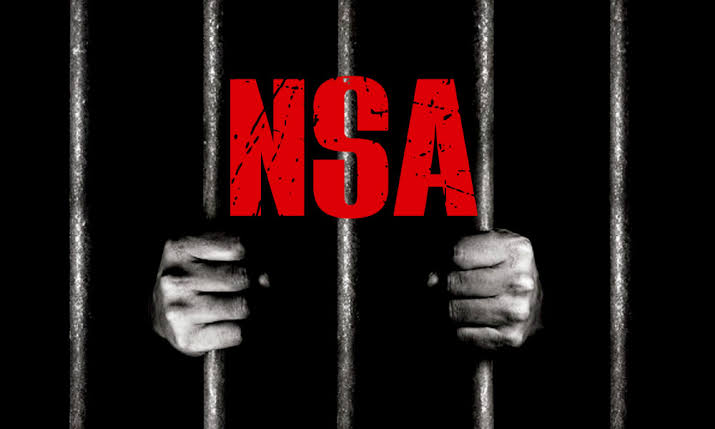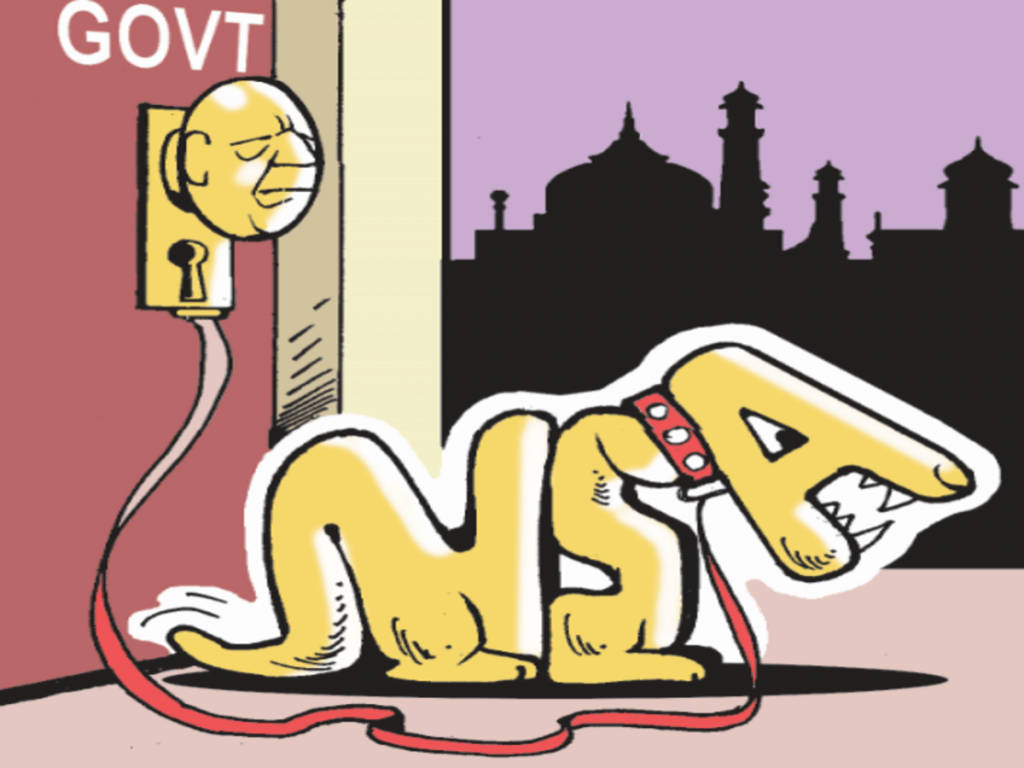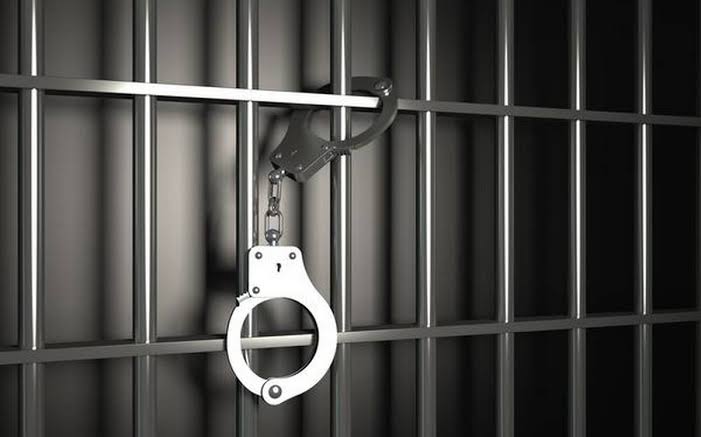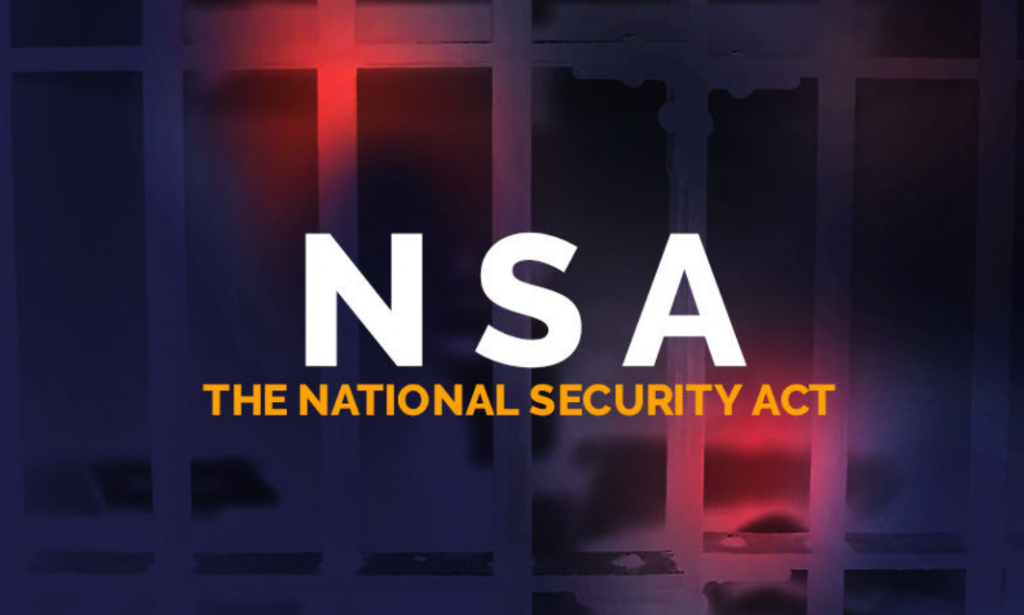- Umang Sagar
- Polity, Recent article
National Security Act (NSA)

The National Security Act, 1980
The National Security Act of India gives power to the Government to arrest a person,
If the authorities suspect any unlawful activities with regard to the person, or if a person is considered a threat to the nation’s security. It was passed on 23 September 1980, under the Government of Prime Minister Indira Gandhi, which extended to the whole of India including
Jammu and Kashmir after the abolition of Article 370 of the Constitution and the implementation of the Jammu and Kashmir Reorganisation Act, which was passed on 9th August 2019.
The NSA includes 18 sections.
Historical Background
Laws related to national security in India date back to the colonial era. The first law related to national security in India was the ‘Defence of India Act, 1915’ which was passed during the World War. This act empowered the state to detain a person. After which, the ‘Bengal Regulation III of 1818’ was imposed to empower the government to arrest anyone they suspected of being a threat to the defence and maintenance of public order, without giving the person the option of judicial proceedings. The National Security Act (NSA) has its roots in the Preventive Detention Laws. After that, the ‘Rowlatt Act of 1919’ was passed, which gave immense power to the State to detain a person without giving him/her any power to move to the courts.
The historical Jallianwalla Bagh massacre occurred due to protest against this very law.
Another law for the purpose of defence, external affairs and release of functions of the Crown with regard to the states was passed in the name of ‘The Government of India Act, 1935.’

- After Independence, these laws were carried forward under the Preventive Detention Act of 1950, under Prime Minister Jawaharlal Nehru. This law was succeeded by the ‘Maintenance of the Internal Security Act of 1971’. Seven years later, in 1977, MISA was abolished. After this, for three years, there existed no laws related to preventive detention. The National Security Act of 1980 came into existence, by virtue of which orders can also be given by the District Magistrate or a Commissioner of Police under their respective jurisdictions, but detention should be reported to the State Government supported by the grounds on which the order has been made. If they find any suspect with regards to the mentioned law, the individual will be detained on the basis of that.
Provision Of National Security Act Of 1980

The basic right which is provided by Article 21 and Article 22 will be denied to the person who is detained.
Rights under Sections 56 and 40 of CrPc (Criminal Procedure Code) Which states that an arrested person has to be produced before court within 24 hours of arrest, is also denied to him/her.
A suspect can be detained for up to a minimum of 10 days and a maximum of 12 months without a charge.
Grounds Of Detention

Action, that is in any way, prejudicial to the defense of India, India’s foreign relations, and India’s national security.
Detention of a foreigner when making arrangements for regulating his/her presence in India, or ’his/her expulsion from India.
To people from acting in any manner prejudicial to the security of the center or the maintenance of public order, or to the maintenance of security and supplies essential to the community.
Constitution Of Advisory Board

The State or Central Government shall constitute one or more advisory boards.
The grounds of detention must be placed before the advisory board in writing, 3 weeks from the date of detention.
Three people who are qualified to execute the required duties, are to be appointed as judges of the high court.
The detained persons are allowed a lawyer during the trial, but they are permitted to appeal before an advisory.
If the advisory board finds no sufficient cause for the detention, the Government shall revoke the detention order.
Issues With National Security Act
- The order passed by either the Divisional Commissioner or the District Magistrate, or the police, cannot be passed on the basis of specific allegations or for specific violations of law.
Conditions When Nsa Can Be Evoked

If a person has been granted bail by a trial court, he/she can be immediately detained under the NSA. If a person is in police custody, the District Magistrate can invoke the NSA against him.
If a person has been interrogated by the court, he/she can be detained under NSA.
Safeguards Against The Act
As per Article 22(5), the detained person has the right to make an effective representation before an independent advisory board.
The Writ of Habeas Corpus is another safeguard that provides protection under the Constitution against the State power taking people into custody under NSA.
Criticism Of National Security Act
It has been found that the Government uses the Act as a weapon against those who try to go against their ideology.
In many cases, different State Governments have invoked the stringent provision of NSA to detain persons who are merely researchers or
Activists, for questionable offenses.
Article 22 and various provisions of the Criminal Procedure Code (CrPc) safeguard the interests of an arrested person has been denied such as;
Arrested persons have to be informed with regards to the grounds of arrest.
The arrested person cannot be denied the right to consult and to be defended by legal practitioners of his choice.
Neither of the above rights is applicable for the detained person.
Conclusion
As rightly stated by the American jurist Schaefer, “The quality of a nation civilization can be largely measured by the methods it uses in the enforcement of its criminal law”.
With respect to the cases that are registered against the individuals, many loopholes can be found. In most cases, if people are found guilty, they are released. But the issue that arises here is not the availability of Articles 21 and 22, which give a person his/her basic rights. If they were for them, then the chances of getting bailed will be much easier for them. However, it has been observed that political leaders nowadays use the NSA as their weapon against naysayers and activists who try to oppose them.
So, just like the other laws, this law should be amended to include basic legal rights, and it should be imposed as a regular law.
Top 13 Interesting Facts
As per the 1993 report, 72.3 % of 3783 people detained under the law were later released due to lack of evidence.
Under the NSA, neither Article 22(1) nor Section 50 of CrPc (Criminal Procedure Code) work in favor of detained persons.
The National Records Bureau (NCRB) which collects crime data does not include the cases that are filed under the NSA.
The 1st person to be detained under this law was A.K Roy and K.D Chatterjee (MLA), both of whom were active unionists from Dhanbad.
Prime Minister Indira Gandhi announced on October 1, 1980, that the Government is in dire need of the National Security Act.
The exercise of the National Security Act has also been arbitrary.
The entries of List I and List III of our Constitution allow the passing of preventive detention laws.
India is one of the few countries in the world whose Constitution allows for preventive detention during peacetime.
In the beginning, NSA came into existence for the purpose of controlling criminals such as black marketers and smugglers.
The first post-Independence Preventive Detention Law was known as the ‘Preventive Detention Act of 1950.’
The detained persons can be held for 10 days without even being told about charges against them.
The 177th Law Commission Report of 2001 says that 14,57,779 persons were detained under the Preventive Provision of India.
The grounds of detention should be put before the advisory Board within 3 weeks from the date of detention.




